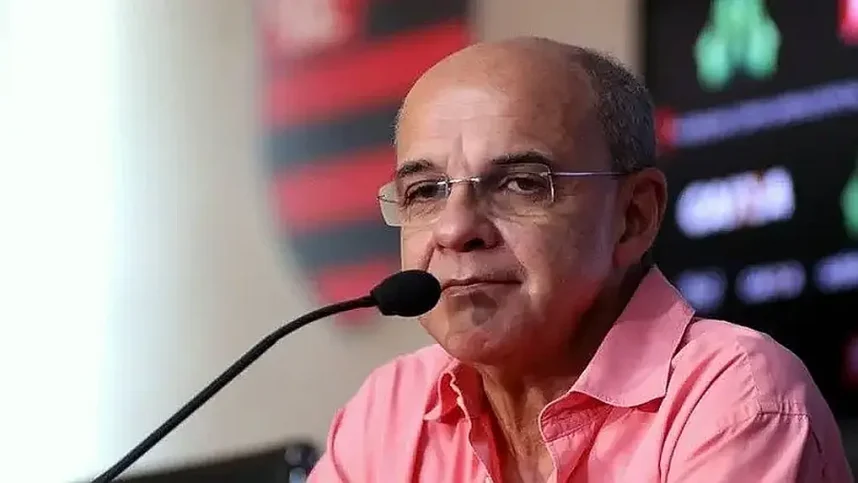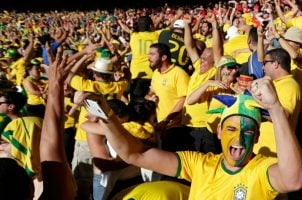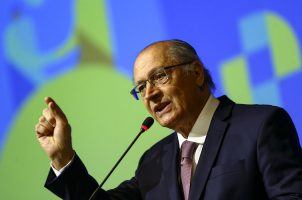Brazil Launches Parliamentary Inquiry Over Match-Fixing in Sports
Posted on: May 16, 2023, 07:47h.
Last updated on: May 16, 2023, 12:28h.
The continuing saga of alleged match-fixing in Brazilian sports is forcing the government to take a detour from reforming the country. A parliamentary commission of inquiry (PCI) on sports betting is set to begin Tuesday in the Chamber of Deputies, with up to 34 legislators having a seat at the table.

The PCI will investigate fraud mostly in soccer, although it could also look at other sports. Match-fixing in tennis has been a problem as well, and has also become a global issue.
The Brazilian state of Goias announced last week that it found at least 16 people involved in various match-fixing activities. It’s part of a larger investigation taking place across the country, and which also reached MLS and the Colorado Rapids.
Stepping Up the Crackdown
The commission will likely be led by André Fufuca as its president, according to an announcement by the legislative body. The full list of names of the deputies participating in the inquiry won’t be available until after the first meeting.
The commission will have names linked to soccer, including deputies Eduardo Bandeira de Mello, the former president of soccer club Flamengo, and Maurício do Vôlei, a former player of the Brazilian men’s volleyball team.
Felipe Carreras, who previously chaired the sports commission and was a rapporteur on matters such as the “Legal Framework of Gambling” and the “General Law of Sport,” will also play a role on the commission.
According to the latest investigation in Goias, players received up to BRL100,000 (US$20,450) to provoke yellow and red cards in games. The cases occurred in tournaments such as the A and B series of the Brazilian Championship in 2022, and the Paulista and Gaucho championships of 2023.
Eight players have been removed from their clubs because of their alleged participation in the scheme. The list includes names from Fluminense, Santos, Athletico Paranaense, São Bernardo, América – MG, and Coritiba. The investigation also led to the removal of Max Alves from the Rapids.
Bandeira de Mello told local media outlet Jovem Pan News that the CPI’s goal is to eradicate match-fixing in sports. He admitted that it has probably been taking place more often than many realize.
He expects the inquiry to lead to drastic measures against those who organize and commit the manipulation, with new laws possibly arriving out of the review. In addition, the CPI will work closely with the federal police and the public prosecutor’s office to arrest anyone involved.
Regulated Sports Betting on the Horizon
A provisionary measure that would regulate the sports betting industry in Brazil is now in President Inacio Lula da Silva’s hands. The Ministry of Finance has delivered that final draft, which is awaiting the president’s signature.
The draft attempts to address all aspects of sports betting. Enforcement, however, might prove more complicated.
It stipulates that sportsbooks can only process deposits and withdrawals through bank accounts of institutions approved by the Central Bank and established in Brazil. In addition, it allocates 1% of operators’ revenue to the new Ministry of Sport.
With the initial 15% tax on operators, this makes the effective tax rate 16%, which is 11% more than initial estimates. Whereas operators, under sports betting legislation from 2018, thought they would only give up 5%, the increase to 16% is significant.
The percent of that tax revenue will go to the country’s Social Security program. Sports clubs and entities will share 1.63%, while another 2.55% is earmarked for Brazil’s national police force.
The text also prohibits advertising from unlicensed bookmakers. Finally, the measure prohibits players and club officials from placing bets. The same will apply to the sportsbooks’ employees, as well as minors under 18 and public officials.
It’s possible that da Silva may sign the reforms at any moment. Once he does, and following a review by the Chamber of Deputies and Senate, they will enter a 60-day “soft launch.” If that goes smoothly, the measure will receive a 60-day extension toward becoming law.
Related News Articles
Most Popular
Tropicana Las Vegas to be Imploded, Tentative Date Set
VEGAS MYTHS BUSTED: Golden Gate is the Oldest Casino in Vegas
Most Commented
-
End of the Line for Las Vegas Monorail
— April 5, 2024 — 90 Comments
















No comments yet